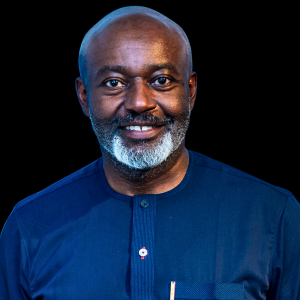
Our Team in South Africa

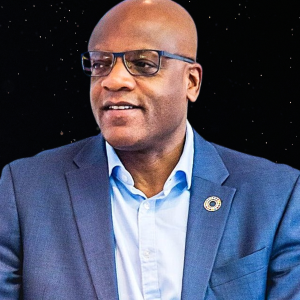
Masimba Tafirenyika, a national of Zimbabwe, is the Director of the United Nations Information Centre in Pretoria, an office that provides communications services to UN in South Africa. He assumed his current position in 2017. Prior to this, he was the head of the Africa Section in the UN Department of Global Communications and Editor-in-Chief of its Africa Renewal, the UN’s Secretariat’s premier magazine on African developmental issues. Previously, he served as the Officer-in-Charge of the Pretoria Information Centre from 2008 to 2009, and as Deputy Director from 2006 to 2008. From 1998 to 2006, Mr. Tafirenyika worked at UN Headquarters as an information analyst before joining peacekeeping operations and peacebuilding missions in West Africa responsible for strategic communications and subsequently overseeing peacekeeping missions from UN Headquarters in Liberia and Sierra Leone. He has a Master of Arts degree in International Affairs from Columbia University in New York, the United States, and a Bachelor of Arts honours degree in Economics from the University of Zimbabwe.
Read more
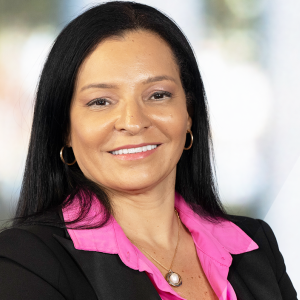
Cláudia Conceição
IFC
Regional Director for Southern Africa
As the Regional Director for Southern Africa at IFC - International Finance Corporation, Cláudia Conceição leads the strategy and operations of the world's largest development institution focused on the private sector in emerging markets. With over 20 years of experience in the financial services industry, I have a proven track record of delivering innovative and impactful solutions for clients across various sectors and geographies, especially in the energy and natural resources sector.
Her core competencies include financial risk management, corporate finance, financial planning, and debt restructuring and insolvency. Cláudia Conceição also have a keen interest in emerging technologies and their applications in the financial sector, such as blockchain and digital currencies. Cláudia recently completed the Oxford Blockchain Strategy Programme, which enhanced her knowledge and skills in this exciting and rapidly evolving field. Cláudia Conceição ‘s mission is to leverage my expertise and network to support the development and growth of sustainable and inclusive businesses and economies in Southern Africa and beyond.
Read more
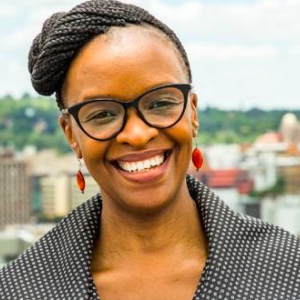
Abigail Noko is the Regional Representative of the Regional Office of OHCHR in Southern Africa. She has worked at OHCHR for more than 20 years in various capacities. Prior to her current posting, she oversaw OHCHR’s work from headquarters in east and southern Africa and the African Union and undertook special assignments in Sierra Leone and Nigeria. Previously she was Special Assistant to the Assistant Secretary General for Human Rights, the adviser on HIV and worked on external relations and donor relations. Before joining OHCHR, she worked with UNHCR and in the private sector.
Read more
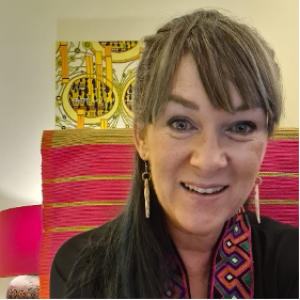
Aleta Miller served as Country Representative at UN Women Afghanistan since April 2018 and prior was the UN Women Representative of the Fiji Multi-Country Office, covering 14 Pacific Island nations.
Aleta has extensive experience in Women’s Rights, Human Rights, Refugee Rights, Public Health, and International Development, gained through more than 25 years of professional engagement, including with UN Women, UNFPA and UNAIDS, and several NGOs and Governments.
In addition to the above, she served in Myanmar, China, Hong Kong, Nepal, Papua New Guinea, Eastern Europe, and Central Asia, as well as New York, and her native Australia. Aleta is a Clinical Psychologist (Australian registered, non-practicing status) and holds a Master's degree in International Public Health, along with undergraduate degrees in Behavioral Science and in Occupational Health.
Aleta has extensive experience in Women’s Rights, Human Rights, Refugee Rights, Public Health, and International Development, gained through more than 25 years of professional engagement, including with UN Women, UNFPA and UNAIDS, and several NGOs and Governments.
In addition to the above, she served in Myanmar, China, Hong Kong, Nepal, Papua New Guinea, Eastern Europe, and Central Asia, as well as New York, and her native Australia. Aleta is a Clinical Psychologist (Australian registered, non-practicing status) and holds a Master's degree in International Public Health, along with undergraduate degrees in Behavioral Science and in Occupational Health.
Read more
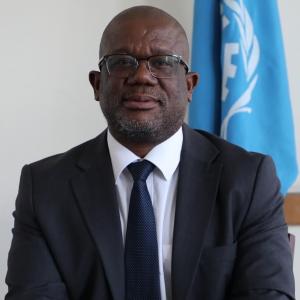
Alexio Musindo
ILO
Director of the ILO Decent Work Team for Eastern and Southern Africa
Alexio has more than over twenty-five years of experience in international development across various African nations. Before assuming his role as ILO Director for Country Office Botswana, Eswatini, Lesotho and South Africa and Decent Work Team for Eastern and Southern Africa, Alexio held several leadership positions in the ILO. He served as the ILO Representative in Ethiopia, Djibouti, Somalia, Sudan, and South Sudan. Additionally, he served as the ILO Special Representative to the African Union and Economic Commission for Africa from 2019 to 2024. Prior to that, he was the ILO Country Director for Zambia, Malawi, and Mozambique from 2015 to 2018, and the ILO Director for East Africa from 2008 to 2015. Alexio embarked on his UN career as a Programme Officer in 1998 at the ILO Regional Office for Africa in Abidjan, Ivory Coast. Throughout his tenure, he has led various ILO teams and represented the organization across numerous countries in East, Southern and Horn of Africa. Alexio holds a Bachelor of Science Degree in Economics from the University of Zimbabwe and a master’s degree in development economics from Williams College, Massachusetts, USA. He is a certified coach form CAPP institute, USA.
Read more
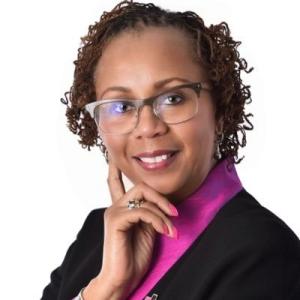
Anne Githuku-Shongwe
UNAIDS
Director, UNAIDS Regional Support Team for Eastern and Southern Africa
Anne Githuku-Shongwe is the Director of the UNAIDS Regional Support Team for Eastern and Southern Africa. She has 20 years of experience as a senior international development professional, including with the United Nations Development Programme, across Africa and in management consulting in the United States of America.
Her last post was as the Representative for UN Women’s South Africa multicountry office, which is responsible for women's empowerment and gender equality in Botswana, Eswatini, Lesotho, Namibia and South Africa.
Ms Githuku-Shongwe is an award-winning social entrepreneur and founder of AROES, a digital and gamification learning enterprise, and is a thought leader on the future of learning.
Ms Githuku-Shongwe and AFROES have received multiple awards, including the prestigious Schwab Foundation/World Economic Forum Social Entrepreneur of the Year 2013 award and a national award, the Order of the Grand Warrior, from the President of Kenya.
She is an author and contributor to several books, including The write to speak: a collection of stories by African women leaders, Kenya@50 and Turning a crisis into an opportunity: the HIV response in Lesotho. She is also a board member and grand juror of the World Summit Awards for the United Nations Information Society and a former Global Ambassador of the Vital Voices leadership programme.
She has a masters degree in international development from the American University, a certificate in social innovation from the University of Cape Town Graduate School of Business, a certificate in the art of large-scale systems change for social entrepreneurship from Harvard University and a management certificate from Jones International University.
Her last post was as the Representative for UN Women’s South Africa multicountry office, which is responsible for women's empowerment and gender equality in Botswana, Eswatini, Lesotho, Namibia and South Africa.
Ms Githuku-Shongwe is an award-winning social entrepreneur and founder of AROES, a digital and gamification learning enterprise, and is a thought leader on the future of learning.
Ms Githuku-Shongwe and AFROES have received multiple awards, including the prestigious Schwab Foundation/World Economic Forum Social Entrepreneur of the Year 2013 award and a national award, the Order of the Grand Warrior, from the President of Kenya.
She is an author and contributor to several books, including The write to speak: a collection of stories by African women leaders, Kenya@50 and Turning a crisis into an opportunity: the HIV response in Lesotho. She is also a board member and grand juror of the World Summit Awards for the United Nations Information Society and a former Global Ambassador of the Vital Voices leadership programme.
She has a masters degree in international development from the American University, a certificate in social innovation from the University of Cape Town Graduate School of Business, a certificate in the art of large-scale systems change for social entrepreneurship from Harvard University and a management certificate from Jones International University.
Read more
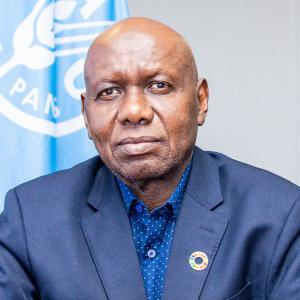
Dr. Babagana Ahmadu is FAO Representative in South Africa as of 1st January 2023. Prior to this post, he served as FAO Representative in three countries in Africa, Namibia, the Republic of Gambia, and Sudan. He previously worked as a Livestock Development Officer in the Livestock Credit Unit of the Nigerian Agricultural Cooperative and Rural Development Bank in Kaduna, Nigeria.
Babagana also worked as an Assistant Lecturer at the Faculty of Veterinary Medicine of the University of Maiduguri in Nigeria, and was appointed to the post of Lecturer at the Faculty of Veterinary Medicine of the University of Maiduguri. He was the pioneer Director for Rural Economy and Agriculture of the African Union Commission (AUC –DREA) and was instrumental in developing policies and strategic frameworks on leading global issues in many countries across Africa. As the first substantive Director for the AUC – DREA, Babagana provided the overall leadership, as well as managed all Heads of Divisions/Specialized Technical Offices under the department in different parts of Africa.
He holds a Doctor of Philosophy in Veterinary Medicine (Livestock Development) from the University of Zambia, a Master of Science in Tropical Animal Production and Health from the University of Edinburgh in the United Kingdom, and Doctor of Veterinary Medicine from the Ahmadu Bello University in Nigeria.
Babagana also worked as an Assistant Lecturer at the Faculty of Veterinary Medicine of the University of Maiduguri in Nigeria, and was appointed to the post of Lecturer at the Faculty of Veterinary Medicine of the University of Maiduguri. He was the pioneer Director for Rural Economy and Agriculture of the African Union Commission (AUC –DREA) and was instrumental in developing policies and strategic frameworks on leading global issues in many countries across Africa. As the first substantive Director for the AUC – DREA, Babagana provided the overall leadership, as well as managed all Heads of Divisions/Specialized Technical Offices under the department in different parts of Africa.
He holds a Doctor of Philosophy in Veterinary Medicine (Livestock Development) from the University of Zambia, a Master of Science in Tropical Animal Production and Health from the University of Edinburgh in the United Kingdom, and Doctor of Veterinary Medicine from the Ahmadu Bello University in Nigeria.
Read more
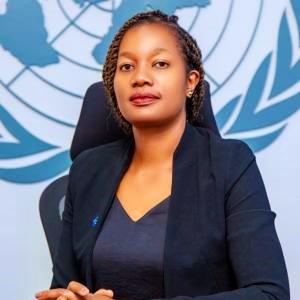
Eunice G. Kamwendo was appointed as Director for the United Nations Economic Commission for Africa, Southern Africa Sub Regional Office in Lusaka, Zambia. She leads ECA’s efforts in supporting member states in the sub region towards inclusive industrialization in order to reduce poverty and inequalities.
Ms. Kamwendo has devoted more than 20 years of her professional career to economic development, analysis and policy research both with the UN and externally. Within the UN System, She spent the last 14 years with UNDP at global and regional levels in New York and South Africa. Ms. Kamwendo was most recently a Senior Strategic Advisor, leading research, strategy and analysis for UNDP Africa in New York; Policy Advisor with UNDP’s Bureau for Development Policy also in New York and Policy Advisor for East and Southern Africa for UNDP’s Regional Service Centre in South Africa. Before that, she worked as an Economic Governance Research Analyst for the continental African Peer Review Mechanism (APRM) in South Africa where she contributed to the first country reviews of South Africa, Uganda, Nigeria and Zambia.
Prior to her international career, Eunice was a Senior Economist and special advisor to the Secretary to the Treasury on macroeconomic issues and engagements with the IMF in the Ministry of Finance in Malawi. She started her career as an economist in the Ministry of Economic Planning and Development also in Malawi where she contributed to the development of the country’s Vision 2020 and related growth and development strategies.
An economist by training, she holds a Master of Science degree in Economics from the University of Southampton in the UK.
Ms. Kamwendo has devoted more than 20 years of her professional career to economic development, analysis and policy research both with the UN and externally. Within the UN System, She spent the last 14 years with UNDP at global and regional levels in New York and South Africa. Ms. Kamwendo was most recently a Senior Strategic Advisor, leading research, strategy and analysis for UNDP Africa in New York; Policy Advisor with UNDP’s Bureau for Development Policy also in New York and Policy Advisor for East and Southern Africa for UNDP’s Regional Service Centre in South Africa. Before that, she worked as an Economic Governance Research Analyst for the continental African Peer Review Mechanism (APRM) in South Africa where she contributed to the first country reviews of South Africa, Uganda, Nigeria and Zambia.
Prior to her international career, Eunice was a Senior Economist and special advisor to the Secretary to the Treasury on macroeconomic issues and engagements with the IMF in the Ministry of Finance in Malawi. She started her career as an economist in the Ministry of Economic Planning and Development also in Malawi where she contributed to the development of the country’s Vision 2020 and related growth and development strategies.
An economist by training, she holds a Master of Science degree in Economics from the University of Southampton in the UK.
Read more
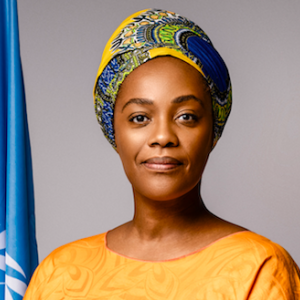
Prior to her appointment as UNAIDS Country Director, Ms. Eva Kiwango served for four year as the UNAIDS Country Director for Mozambique and brings over 24 years of experience in policy, planning, technical assistance, program management, implementation and monitoring and evaluation.
She has served the Joint United Nations Programme on HIV/AIDS (UNAIDS) since 2004, with postings in South Africa, Switzerland and Mozambique.
While in Mozambique, Ms. Kiwango performed multiple roles in supporting national efforts to expand access to HIV prevention and treatment, strengthen human rights advocacy, foster civil society engagement and mobilize HIV financing. As such, in partnership with the Government and civil society organizations,Ms. Kiwango contributed to the mobilization of over 4 billion USD from PEPFAR and the Global Fund for AIDS, TB and Malaria during her tenure.
She also brought her practical multidisciplinary and multi-layered systems -thinking and leadership to guide an expanded UN system wide HIV response that addresses multiple intersectional inequalities. In line with the peace-development and humanitarian nexus approach. Ms. Kiwango worked with the government, communities, and development partners to strengthen collaboration between the emergency response programming and the HIV response during cyclone Idai and Kenneth and on-going humanitarian crises in Cabo Delgado province.
Before joining UNAIDS, Ms. Kiwango worked for the United Nations Economic Commission for Africa (UNECA) African Centre for Gender in Ethiopia starting in 2001,providing technical support to Sudan, the Seychelles, SADC, Uganda and Zambia.
Ms. Kiwango has also worked in Tanzania for USAID, Danida on rural community development poverty, health and education initiatives, and as a consultant for the Tanzanian Ministry of Health where she contributed to strengthening results-based programming in the National Tuberculosis and Leprosy Programme. Ms. Kwango has a MSc. in Policy and Planning from the London School of Economics (1995). She is a national of Tanzania and is fluent in English and Kiswahili and proficient in Portuguese.
She has served the Joint United Nations Programme on HIV/AIDS (UNAIDS) since 2004, with postings in South Africa, Switzerland and Mozambique.
While in Mozambique, Ms. Kiwango performed multiple roles in supporting national efforts to expand access to HIV prevention and treatment, strengthen human rights advocacy, foster civil society engagement and mobilize HIV financing. As such, in partnership with the Government and civil society organizations,Ms. Kiwango contributed to the mobilization of over 4 billion USD from PEPFAR and the Global Fund for AIDS, TB and Malaria during her tenure.
She also brought her practical multidisciplinary and multi-layered systems -thinking and leadership to guide an expanded UN system wide HIV response that addresses multiple intersectional inequalities. In line with the peace-development and humanitarian nexus approach. Ms. Kiwango worked with the government, communities, and development partners to strengthen collaboration between the emergency response programming and the HIV response during cyclone Idai and Kenneth and on-going humanitarian crises in Cabo Delgado province.
Before joining UNAIDS, Ms. Kiwango worked for the United Nations Economic Commission for Africa (UNECA) African Centre for Gender in Ethiopia starting in 2001,providing technical support to Sudan, the Seychelles, SADC, Uganda and Zambia.
Ms. Kiwango has also worked in Tanzania for USAID, Danida on rural community development poverty, health and education initiatives, and as a consultant for the Tanzanian Ministry of Health where she contributed to strengthening results-based programming in the National Tuberculosis and Leprosy Programme. Ms. Kwango has a MSc. in Policy and Planning from the London School of Economics (1995). She is a national of Tanzania and is fluent in English and Kiswahili and proficient in Portuguese.
Read more
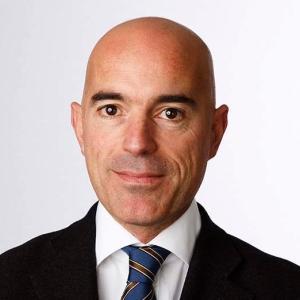
Francesco Maria Rispoli
IFAD
Head, IFAD Southern Africa Multi-Country Office and Country Director
Francesco Rispoli, a national of Italy, is the IFAD Country Director for Rwanda. Prior to his appointment, Mr Rispoli served as Country Director for Rwanda and Tanzania. Rispoli worked as the Senior Technical Specialist in Inclusive Rural Financial Services at IFAD. Before joining IFAD, he worked with UNDP Kenya and in a consulting firm providing technical assistance to the European Commission.
Read more
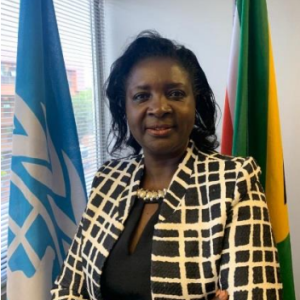
Jane Marie Ongolo
UNODC
UNODC Representative of the Regional Office for Southern Africa (ROSAF).
Ms. Jane Marie Ongolo (Kenya) newly appointed UNODC’s Representative of the Regional Office for Southern Africa (ROSAF).
Jane Marie has over twenty-five years of relevant substantive and managerial experience in national and international positions of increasing responsibility, including work at the continental level with the African Union Commission.
During her career, she has served in various capacities including: Head of Social Welfare, Vulnerable Groups, Drug Control and Crime Prevention with the African Union Commission (AUC) in Addis Ababa, Ethiopia since 2018; Programme Manager, AU Plan of Action on Drug Control and Crime Prevention with the African Union Commission (2010-2018); National Programme Officer (HIV/AIDS) and National Project Officer (Drug Abuse and HIV Prevention) with UNODC ROEA in Nairobi (2005-2010); Regional Governance Advisor, East and Central Africa with the British Council in Kenya (2003-2005); National Programme Manager with the International Labour Organization (ILO) in Kenya (1999-2003); Development Officer, DFID Civil Society Umbrella Project with the British Council in Kenya (1998-1999); Programme Coordinator and Chief Executive Officer with Sinaga Women and Child Labour Resource Centre (NGO) in Kenya (1995-1998); and Children ́s Officer with the Office of the Vice President and Ministry of Home Affairs and National Heritage, Department of Child (Government) in Kenya (1991- 1995).
Jane Marie holds a doctorate in Business & Administration from the Bulacan State University and a Master’s degree in Development Studies from the Erasmus University in Rotterdam. She is fluent in English and has a basic knowledge of French.
Jane Marie has over twenty-five years of relevant substantive and managerial experience in national and international positions of increasing responsibility, including work at the continental level with the African Union Commission.
During her career, she has served in various capacities including: Head of Social Welfare, Vulnerable Groups, Drug Control and Crime Prevention with the African Union Commission (AUC) in Addis Ababa, Ethiopia since 2018; Programme Manager, AU Plan of Action on Drug Control and Crime Prevention with the African Union Commission (2010-2018); National Programme Officer (HIV/AIDS) and National Project Officer (Drug Abuse and HIV Prevention) with UNODC ROEA in Nairobi (2005-2010); Regional Governance Advisor, East and Central Africa with the British Council in Kenya (2003-2005); National Programme Manager with the International Labour Organization (ILO) in Kenya (1999-2003); Development Officer, DFID Civil Society Umbrella Project with the British Council in Kenya (1998-1999); Programme Coordinator and Chief Executive Officer with Sinaga Women and Child Labour Resource Centre (NGO) in Kenya (1995-1998); and Children ́s Officer with the Office of the Vice President and Ministry of Home Affairs and National Heritage, Department of Child (Government) in Kenya (1991- 1995).
Jane Marie holds a doctorate in Business & Administration from the Bulacan State University and a Master’s degree in Development Studies from the Erasmus University in Rotterdam. She is fluent in English and has a basic knowledge of French.
Read more

Johannes started his career with the Austrian Development Cooperation and with the European Commission. He joined UNICEF 25 years ago and worked in progressive leadership positions in both regular and emergency settings. He was the UNICEF head of office for Eastern DRC and in Guyana, Kosovo, Burundi and Malawi. He has a proven track record of leading change in an inclusive manner and of innovating to position UNICEF and children more strategically.
Since September 2019 he has been with ESARO embarking on a design journey with young people in Africa that gave birth to “Yoma”; a youth centric market place and partnership ecosystem that matches young people’s aspirations with opportunities to make an impact, grow their talent and enhance their livelihoods. This has in turn lead to the concept of Youth for Children or Youth Force; a driving force for accelerating results for children and young people in Africa and beyond.
Since September 2019 he has been with ESARO embarking on a design journey with young people in Africa that gave birth to “Yoma”; a youth centric market place and partnership ecosystem that matches young people’s aspirations with opportunities to make an impact, grow their talent and enhance their livelihoods. This has in turn lead to the concept of Youth for Children or Youth Force; a driving force for accelerating results for children and young people in Africa and beyond.
Read more

Kavita Belani
UNHCR
Representative - United Nations High Commissioner for Refugees, South Africa Multi-Country Office (SAMCO)
Ms. Kavita Belani is a Malaysian national and a senior international civil servant with 25 years of service with the United Nations High Commissioner for Refugees (UNHCR). Over the course of her career, she has held leadership and advisory roles across Asia, Africa, Middle East and Europe, working in complex political and humanitarian contexts.
She previously served as UNHCR Representative in Armenia, leading the Office’s engagement with national authorities and regional partners. Her prior assignments include Deputy Chief of Mission in India, Senior Protection Cluster Coordinator in South Sudan, and Liaison Officer to the African Union and the Economic Commission for Africa in Ethiopia. She has also served in Lebanon, Sudan, Tanzania, Bangladesh, Kazakhstan, South Africa, Iraq, Pakistan, Ghana, and Thailand in various protection, management, policy and coordination roles.
Ms. Belani is a law professional and a trained classical pianist, with a strong foundation in legal practice and the arts that has supported her cross-cultural and diplomatic work.
Fluent in Malay and English, she also speaks Indonesian, Hindi, Urdu, Swahili, and Thai, enabling her to operate effectively in diverse linguistic and cultural environments.
She brings to her work a principled commitment to international law, refugee protection, and the strengthening of multilateral cooperation in response to global displacement challenges.
She previously served as UNHCR Representative in Armenia, leading the Office’s engagement with national authorities and regional partners. Her prior assignments include Deputy Chief of Mission in India, Senior Protection Cluster Coordinator in South Sudan, and Liaison Officer to the African Union and the Economic Commission for Africa in Ethiopia. She has also served in Lebanon, Sudan, Tanzania, Bangladesh, Kazakhstan, South Africa, Iraq, Pakistan, Ghana, and Thailand in various protection, management, policy and coordination roles.
Ms. Belani is a law professional and a trained classical pianist, with a strong foundation in legal practice and the arts that has supported her cross-cultural and diplomatic work.
Fluent in Malay and English, she also speaks Indonesian, Hindi, Urdu, Swahili, and Thai, enabling her to operate effectively in diverse linguistic and cultural environments.
She brings to her work a principled commitment to international law, refugee protection, and the strengthening of multilateral cooperation in response to global displacement challenges.
Read more
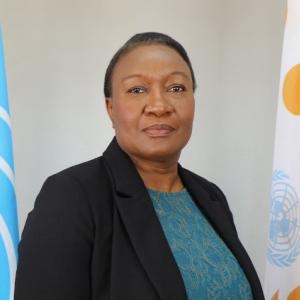
Lydia Zigomo
UNFPA
Regional Director, UNFPA Regional Office for East and Southern Africa
Ms. Lydia Zigomo is the Regional Director for UNFPA, East and Southern Africa. Ms. Zigomo provides strategic oversight, support and technical expertise to 23 Country Offices and partners in the region, who work on the ground to improve people’s lives by equipping them with policy advice, training and support. A human rights lawyer and international development and humanitarian leader, Ms. Zigomo has 30 years’ experience in women and children’s rights, constitutional reform, health systems strengthening, sexual and reproductive health, HIV and AIDS, gender justice, women’s economic empowerment and economic justice, including in humanitarian settings.
She previously served with Oxfam International as Global Programmes Director in Nairobi, Kenya, and as Regional Director for the Horn, East and Central Africa. Before this, she was Regional Director in East Africa for Water Aid.
Ms. Zigomo began her career as a solicitor in Harare, Zimbabwe, before moving into the development sector in 1998. She holds a Master’s degree in Civil Liberties and Human Rights Law from the University of Leicester, UK, and a Bachelor of Laws Honours degree from the University of Zimbabwe.
She previously served with Oxfam International as Global Programmes Director in Nairobi, Kenya, and as Regional Director for the Horn, East and Central Africa. Before this, she was Regional Director in East Africa for Water Aid.
Ms. Zigomo began her career as a solicitor in Harare, Zimbabwe, before moving into the development sector in 1998. She holds a Master’s degree in Civil Liberties and Human Rights Law from the University of Leicester, UK, and a Bachelor of Laws Honours degree from the University of Zimbabwe.
Read more
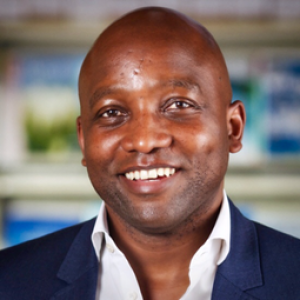
Maxwell Gomera
UNDP
Resident Representative and Director for UNDP Africa Sustainable Finance Hub
Experienced Director, Biodiversity and Ecosystem Services Economics, with a demonstrated history of working in the environmental management industry. Skilled in Natural Resource Management, Environmental Awareness, Sustainable Development, Policy Analysis, and Sustainability. Strong community and social services professional graduated from The University of Western Australia.
Read more
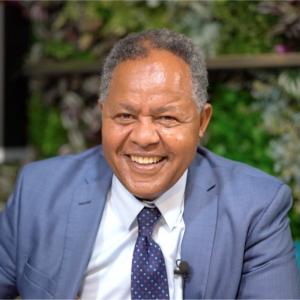
I am currently serving as the WFP Regional Director for Southern Africa based in Johannesburg.
Before moving to South Africa, I served as the WFP Country Director and Representative in Egypt. I have occupied diverse professional posts ranging from a university lecturer in Ethiopia, Research Scientist in the UK, government civil servant in Ethiopia, international private sector consultant in IGAD and most recently the UN WFP. Since joining WFP, I have worked in the Sudan leading a food security and early warning system development, then I moved to the Head Quarters of the organization in Rome, Italy to lead the GIS and remote sensing section of WFP with a global responsibility, then I was appointed as Senior Policy Advisor of the Deputy Executive Director of Hunger Solutions and then I was appointed Deputy Director of the WFP Africa office in Addis Ababa, Ethiopia, with main responsibility liaising with the African Union, NEPAD and ECA. Since 2016 I am serving as WFP Country Director and Representative here in Egypt.
I received my PhD in Meteorology from the University of Reading, UK and I have published several papers and I am regularly invited to speak at international conferences in the area of food security monitoring, climate change and technological applications. My professional interest revolves around capacity building of national governments and developing strategic partnerships with the AUC, NEPAD and Regional Economic, Communities (RECs) in the areas of early warning and Vulnerability Assessment and Mapping (VAM), Disaster reduction and Risk Management including (such as the innovative Africa Risk Capacity - ARC), emergency response, and applications of GIS and remote sensing. More recently I am engaged in building and facilitating strong Public Private Partnerships and contributing to a South South Cooperation.
I strongly believe and advocate for African integration and building strong partnerships among African institutions and countries.
Before moving to South Africa, I served as the WFP Country Director and Representative in Egypt. I have occupied diverse professional posts ranging from a university lecturer in Ethiopia, Research Scientist in the UK, government civil servant in Ethiopia, international private sector consultant in IGAD and most recently the UN WFP. Since joining WFP, I have worked in the Sudan leading a food security and early warning system development, then I moved to the Head Quarters of the organization in Rome, Italy to lead the GIS and remote sensing section of WFP with a global responsibility, then I was appointed as Senior Policy Advisor of the Deputy Executive Director of Hunger Solutions and then I was appointed Deputy Director of the WFP Africa office in Addis Ababa, Ethiopia, with main responsibility liaising with the African Union, NEPAD and ECA. Since 2016 I am serving as WFP Country Director and Representative here in Egypt.
I received my PhD in Meteorology from the University of Reading, UK and I have published several papers and I am regularly invited to speak at international conferences in the area of food security monitoring, climate change and technological applications. My professional interest revolves around capacity building of national governments and developing strategic partnerships with the AUC, NEPAD and Regional Economic, Communities (RECs) in the areas of early warning and Vulnerability Assessment and Mapping (VAM), Disaster reduction and Risk Management including (such as the innovative Africa Risk Capacity - ARC), emergency response, and applications of GIS and remote sensing. More recently I am engaged in building and facilitating strong Public Private Partnerships and contributing to a South South Cooperation.
I strongly believe and advocate for African integration and building strong partnerships among African institutions and countries.
Read more
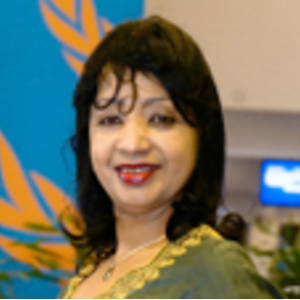
Meseret Teklemariam Zemedkun
UNEP
Head of UNEP Southern Africa, Sub-Regional Office
Meseret Teklemariam Zemedkun (Ph.D) has over 25 years’ professional experience in Earth and natural science, Energy Management, Project management. She holds a Ph.D in Earth Science, Geothermics. Her career began in Ethiopia culminating in becoming Head of Department in GSE (Ministry of Mines and Energy) managing Hydrogeology, Engineering Geology, Geothermal Divisions. She is internationally recognized and acclaimed professional with experience in renewable Energy programme management includingGeothermalEnergyexplorationanddevelopmentinAfrica. ShewasalsoProgrammeManager for Africa Rift Geothermal Development Facility Programme (ARGeo).
Throughout her career at UNEP Africa Office, she has demonstrated professionalism in her work with Member States and she has exceptionally managed the implementation of major projects in several countries, including South Africa and other SADC countries. These include: ( i) Regional African Rift Geothermal Development Facility Project (ARGeo); (ii) Clean Captives installations for industrial clients in Sub Saharan Africa; (iii) Energy Access and Green Transition Programme; and (iv) Women Entrepreneurs and Sustainable Energy in Africa.
She has also been closely involved in different regional and international assignments of the ICS-UNIDO and the African Union Commission (AUC) including in designing the AUC-KfW Geothermal Risk Mitigation Facility for Eastern Africa Countries. As a regional Energy programme coordinator she has been involved with development of regional documents on renewable energy through programmes such as (a) African Hub for Sustainable Energy For All (SE4ALL); (d) UNEP-AfDB’s Africa Energy Resources Atlas; (e) African Renewable Energy Initiative.
She has always focused on Capacity Development in Africa with zeal and has been instrumental in conceptualizing and making possible the African Geothermal Center for Excellence. Meseret has played a leading role in the initiative and development of programmes for support to Women Entrepreneurs in Energy sector in Africa. She was instrumental in setting up the African Geothermal Center for Excellence, a training institution for African countries. Meseret has been a regular faculty of UN University- Geothermal Training Programme in Iceland for many years and has been training geothermal staff in Africa as invited faculty.
In 2009 she served as editor of IPCC Panel of sub-section Renewable sources, Climate Change Mitigation: Geothermal Energy. Meseret is a recipient of many international professional awards and has authored more than 20 professional papers some earned international awards.
Since August 2021, Dr. Zemedkun assumed Officer in charge as a head of UNEP South Africa office.
Throughout her career at UNEP Africa Office, she has demonstrated professionalism in her work with Member States and she has exceptionally managed the implementation of major projects in several countries, including South Africa and other SADC countries. These include: ( i) Regional African Rift Geothermal Development Facility Project (ARGeo); (ii) Clean Captives installations for industrial clients in Sub Saharan Africa; (iii) Energy Access and Green Transition Programme; and (iv) Women Entrepreneurs and Sustainable Energy in Africa.
She has also been closely involved in different regional and international assignments of the ICS-UNIDO and the African Union Commission (AUC) including in designing the AUC-KfW Geothermal Risk Mitigation Facility for Eastern Africa Countries. As a regional Energy programme coordinator she has been involved with development of regional documents on renewable energy through programmes such as (a) African Hub for Sustainable Energy For All (SE4ALL); (d) UNEP-AfDB’s Africa Energy Resources Atlas; (e) African Renewable Energy Initiative.
She has always focused on Capacity Development in Africa with zeal and has been instrumental in conceptualizing and making possible the African Geothermal Center for Excellence. Meseret has played a leading role in the initiative and development of programmes for support to Women Entrepreneurs in Energy sector in Africa. She was instrumental in setting up the African Geothermal Center for Excellence, a training institution for African countries. Meseret has been a regular faculty of UN University- Geothermal Training Programme in Iceland for many years and has been training geothermal staff in Africa as invited faculty.
In 2009 she served as editor of IPCC Panel of sub-section Renewable sources, Climate Change Mitigation: Geothermal Energy. Meseret is a recipient of many international professional awards and has authored more than 20 professional papers some earned international awards.
Since August 2021, Dr. Zemedkun assumed Officer in charge as a head of UNEP South Africa office.
Read more
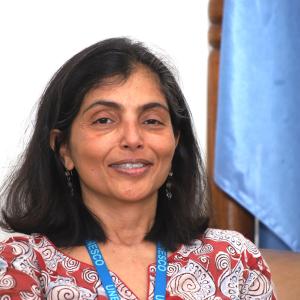
Nisha brings over 35 years of experience to her current role as the Regional Director and Representative. In her current role, Nisha is forging regional and national collaborations and partnerships for building resilient and dynamic communities and societies in Southern Africa. She is leading UNESCO’s programmatic, advocacy, and normative work covering education, natural sciences, social and human sciences, culture, and information and communication in the region. Nisha has been a keen advocate of UN Reforms and has been ensuring the alignment of UNESCO’s work with the common results agreed with the UN System.
Before coming to Southern Africa Nisha served as the Director of the Office and UNESCO Representative to the Pacific States. In the Pacific, Nisha recalibrated the UNESCO Office for the Pacific States to focus on the long-term purpose of the Organization while tending to the urgent operational issues to bring the Organization closer to the national stakeholders. She expanded the Organization’s work, presence, and resources in the Pacific Region and set up four new Offices to cover three subregions of the Pacific.
Nisha’s overall work has been centered on multi-sector development, humanitarian action, labour and human rights, peacebuilding, and local, national, and regional development. Before working with UNESCO, Nisha worked internationally with Oxfam GB, Christian Aid, UNDP, UNIFEM, and the ILO in several countries in the East and Horn of Africa, South Asia, and Arab States, and with civil society organizations in India.
Before coming to Southern Africa Nisha served as the Director of the Office and UNESCO Representative to the Pacific States. In the Pacific, Nisha recalibrated the UNESCO Office for the Pacific States to focus on the long-term purpose of the Organization while tending to the urgent operational issues to bring the Organization closer to the national stakeholders. She expanded the Organization’s work, presence, and resources in the Pacific Region and set up four new Offices to cover three subregions of the Pacific.
Nisha’s overall work has been centered on multi-sector development, humanitarian action, labour and human rights, peacebuilding, and local, national, and regional development. Before working with UNESCO, Nisha worked internationally with Oxfam GB, Christian Aid, UNDP, UNIFEM, and the ILO in several countries in the East and Horn of Africa, South Asia, and Arab States, and with civil society organizations in India.
Read more
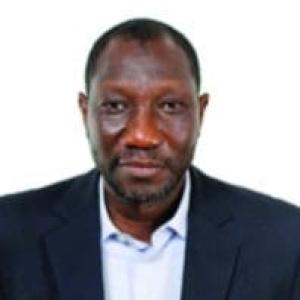
Since January 2020 Oumar Sylla has been acting as Director for the Regional Office for Africa in the United Nations Human Settlements Programme (UN Habitat). Before this, he was Branch Coordinator, Urban Legislation, Land and Governance in UN Habitat and, from September 2015, Head of UN Habitat’s Land and GLTN Unit. Prior to joining the Land and GLTN Unit, Oumar served as a Senior Advisor in UN Habitat’s Regional Office for Africa and focal point to support urban policies development and sustainable urbanization in francophone countries. From 2009 to 2014, he was Chief Technical Advisor for UN Habitat’s Land Programme in DR Congo and he also has experience with the European Union framework, which he gained as a Land Policy Advisor in South Sudan and Burkina Faso (2006-2008). From 1999 to 2005 he was a Research Fellow in the Laboratory of Legal Anthropology in Paris 1 Sorbonne, mainly working on land and decentralization policies in West Africa. In Senegal, he operated as a junior researcher within the ILRI/ ISRA institutional cooperation framework (1998-1999) dealing with land and natural resources.
Read more
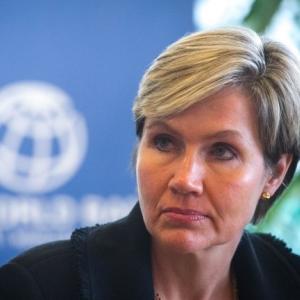
Satu Kahkonen
World Bank
Country Director for South Africa, Botswana, Namibia, Lesotho and Eswatini
Satu Kahkonen is the World Bank Country Director for South Africa, Botswana, Namibia, Lesotho and Eswatini. Ms. Kahkonen oversees the Bank’s program in these countries and leads policy dialogue with government counterparts, civil society and other partners.
Prior to this position, she was the Country Director for Indonesia and Timor-Leste and prior to that, Country Director for Belarus, Moldova, and Ukraine.
Preceding that, she was a Director of the Macroeconomics and Fiscal Management Global Practice at the World Bank Group, which comprises over 350 staff with expertise in macroeconomics, fiscal policy, growth and statistics. Here, she oversaw the work of the Practice in Europe and Central Asia, East Asia and Pacific, as well as South Asia.
Ms. Kahkonen was previously a Sector Manager in the Poverty Reduction and Economic Management unit, which focused on economic policy management and covered 18 countries of the East and South East Europe—new EU Member States and Western Balkans—as well as select Eurozone countries. She had also worked as a Lead Economist in South Asia, East and South East Europe, and Africa in the World Bank. In that role, she led a team which provided economic policy advice and technical expertise to multiple countries including Pakistan, Bulgaria, Croatia, and Uganda.
Before joining the World Bank, Ms. Kahkonen was part of the faculty of the University of Maryland and Associate Director of the Center for Institutional Reform and the Informal Sector (IRIS), a think tank affiliated with the Department of Economics and headed by the late Professor Mancur Olson. Ms. Kahkonen is the author of three books on economic development, and has published numerous economic reports and research papers. Ms. Kahkonen holds a Ph.D. in Economics from the University of Pennsylvania, where she studied as a Fulbright Scholar, and an M.Sc. from the Helsinki School of Economics.
Prior to this position, she was the Country Director for Indonesia and Timor-Leste and prior to that, Country Director for Belarus, Moldova, and Ukraine.
Preceding that, she was a Director of the Macroeconomics and Fiscal Management Global Practice at the World Bank Group, which comprises over 350 staff with expertise in macroeconomics, fiscal policy, growth and statistics. Here, she oversaw the work of the Practice in Europe and Central Asia, East Asia and Pacific, as well as South Asia.
Ms. Kahkonen was previously a Sector Manager in the Poverty Reduction and Economic Management unit, which focused on economic policy management and covered 18 countries of the East and South East Europe—new EU Member States and Western Balkans—as well as select Eurozone countries. She had also worked as a Lead Economist in South Asia, East and South East Europe, and Africa in the World Bank. In that role, she led a team which provided economic policy advice and technical expertise to multiple countries including Pakistan, Bulgaria, Croatia, and Uganda.
Before joining the World Bank, Ms. Kahkonen was part of the faculty of the University of Maryland and Associate Director of the Center for Institutional Reform and the Informal Sector (IRIS), a think tank affiliated with the Department of Economics and headed by the late Professor Mancur Olson. Ms. Kahkonen is the author of three books on economic development, and has published numerous economic reports and research papers. Ms. Kahkonen holds a Ph.D. in Economics from the University of Pennsylvania, where she studied as a Fulbright Scholar, and an M.Sc. from the Helsinki School of Economics.
Read more
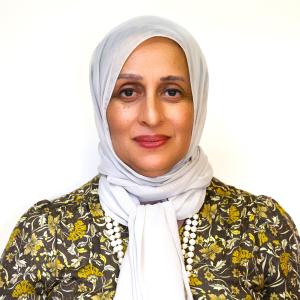
Shenaaz El- Halabi is an accomplished public health executive with 32 years of experience. She excels in strategic collaboration, negotiation, and alliance-building, leading complex health programs with a focus on maternal and child health, HIV/AIDS, Tuberculosis, Malaria, and Non-Communicable Diseases (NCDs). El-Halabi was in January 2025 appointed as the World Health Organization (WHO) Country Office Representative in South Africa. Prior to this she served as Director in the Office of the Director-General of WHO for 7.5 years. She advised the WHO Director-General on political matters and strategic high-level engagements, while overseeing coordination of executive office activities.
National of Botswana, Shenaaz has served in numerous senior leadership positions in public health. Prior to joining WHO, she served as Permanent Secretary in Botswana’s Ministry of Health and
Wellness, where she oversaw a large public health sector workforce and the second largest public sector budget in the country. She has also served in other leadership positions during her 24.5 years public service span. Shenaaz Halabi holds a prestigious degree from Boston University School of Public Health, further enriching her expertise and leadership in the field of public health. Committed to driving positive change, Shenaaz continues to leverage her education and experience to make a significant impact on global health outcomes.
National of Botswana, Shenaaz has served in numerous senior leadership positions in public health. Prior to joining WHO, she served as Permanent Secretary in Botswana’s Ministry of Health and
Wellness, where she oversaw a large public health sector workforce and the second largest public sector budget in the country. She has also served in other leadership positions during her 24.5 years public service span. Shenaaz Halabi holds a prestigious degree from Boston University School of Public Health, further enriching her expertise and leadership in the field of public health. Committed to driving positive change, Shenaaz continues to leverage her education and experience to make a significant impact on global health outcomes.
Read more
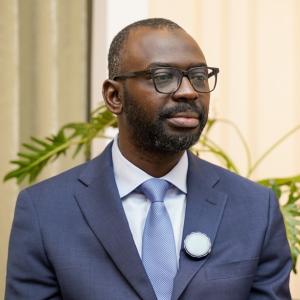
Tidiane Kinda is the IMF’s Senior Resident Representative for South Africa. Prior to this, he was Mission Chief and Deputy Division Chief in the IMF’s Asia Pacific Department (APD) where he led teams on countries such as Maldives, Nepal, Palau, and Singapore. He was also co-chair of ASEAN surveillance, Assistant to the Director of APD with an advisory role, and Senior Desk on Indonesia. Since joining the IMF in 2009, he worked in the African Department and the Fiscal Affairs Department covering advanced, emerging, and low-income countries in the context of surveillance, IMF programs, and technical assistance, including Canada, Euro Area, Croatia, Peru, Chad, Eswatini, and Moldova. He published widely in academic journals such as Journal of Public Economics, IMF Economic Review, Word Development and co-edited the IMF book Realizing Indonesia’s Economic Potential. His research featured in The Economist and Financial Times. His work experience before the IMF includes the World Bank and the Central Bank of West African States (BCEAO). He holds a Ph.D. in Economics from CERDI-University of Auvergne (France), was Research Fellow at Columbia University, and received leadership training at the MIT Sloan School of Management (U.S.A)
Read more

Yitna Getachew
IOM
Chief of Mission South Africa and Sub-Regional Director for Southern Africa
Yitna Getachew is the Chief of Mission South Africa and Sub-Regional Director for Southern Africa.
Yitna most recently held the position of Chief, Migrant Protection Unit and earlier Acting Director of the then Protection Division (PXD) at headquarters in Geneva, Switzerland. Over the course of more than twenty years with IOM, he has established himself as a prominent expert in migrant protection and assistance.
His career has taken him across diverse regions, including postings in Afghanistan, Zambia, Ethiopia, South Africa, and Egypt, where he held pivotal roles working on global and regional migration dynamics and the vulnerabilities faced by migrants.
Yitna is an Ethiopian national, he holds an LLM in Law from Stellenbosch University in South Africa and an LLB from Addis Ababa University in Ethiopia. His academic background is complemented by advanced training in strategic leadership, negotiation, project development, and human rights.
Yitna most recently held the position of Chief, Migrant Protection Unit and earlier Acting Director of the then Protection Division (PXD) at headquarters in Geneva, Switzerland. Over the course of more than twenty years with IOM, he has established himself as a prominent expert in migrant protection and assistance.
His career has taken him across diverse regions, including postings in Afghanistan, Zambia, Ethiopia, South Africa, and Egypt, where he held pivotal roles working on global and regional migration dynamics and the vulnerabilities faced by migrants.
Yitna is an Ethiopian national, he holds an LLM in Law from Stellenbosch University in South Africa and an LLB from Addis Ababa University in Ethiopia. His academic background is complemented by advanced training in strategic leadership, negotiation, project development, and human rights.
Read more
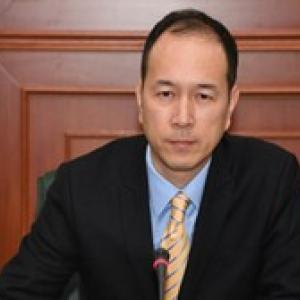
Yu Yu
UNFPA
Representative South Africa and Country Director for Botswana and Eswatini)
Yu Yu has over two decades of international experience in the field of sexual reproductive health and rights, gender equality and women's empowerment and population and development in both humanitarian and development settings. He was appointed as the Representative of the United Nations Population Fund (UNFPA) office in South Africa, and Country Director for Botswana and Eswatini in January 2024. Prior to joining the UNFPA South Africa office, Yu Yu held various leadership positions in UNFPA offices in Uzbekistan, Tajikistan, Zimbabwe, Pakistan and DPRK. He led the plan and implementation of large and complex humanitarian and development programmes and enabled strategic policy support to the host governments and partners in the areas of demographic intelligence, GBV, and health system strengthening, among others.
During his days in the Ministry of Commerce in China, he provided policy support to the development assistance to China from multilateral partners, such as UNDP, UNFPA, UNOPS and UNICEF. Yu Yu is passionate for advancing the rights and choice for all. He is a strong advocate for UN development system reform and has led collective UN efforts in the area of gender equality and women’s empowerment, data, monitoring and evaluation and youth. He has served as RC a.i in Uzbekistan from July 2021 to February 2022 and coordinated the UNCT to prepare for the establishment of Vision 2030 Fund, an innovative financing mechanism for SDGs. He holds MSc in Public Policy and Management from the School of Oriental and African Studies (SOAS), University of London and is also trained in international finance and trade.
During his days in the Ministry of Commerce in China, he provided policy support to the development assistance to China from multilateral partners, such as UNDP, UNFPA, UNOPS and UNICEF. Yu Yu is passionate for advancing the rights and choice for all. He is a strong advocate for UN development system reform and has led collective UN efforts in the area of gender equality and women’s empowerment, data, monitoring and evaluation and youth. He has served as RC a.i in Uzbekistan from July 2021 to February 2022 and coordinated the UNCT to prepare for the establishment of Vision 2030 Fund, an innovative financing mechanism for SDGs. He holds MSc in Public Policy and Management from the School of Oriental and African Studies (SOAS), University of London and is also trained in international finance and trade.
Read more

